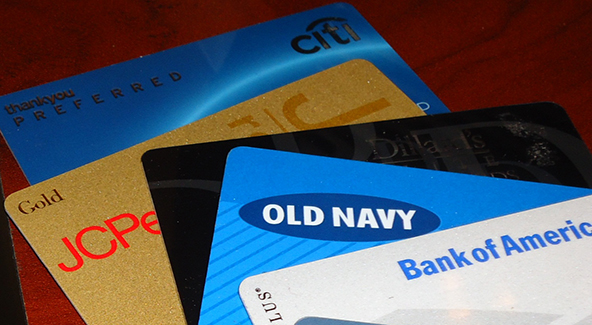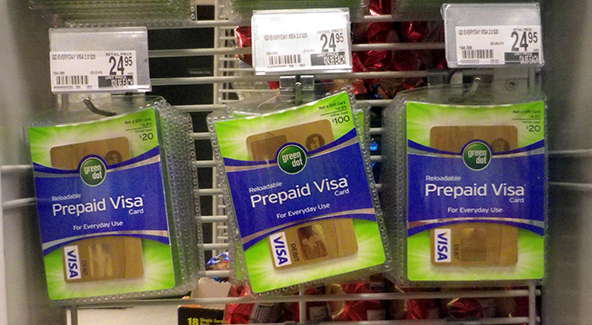Store Cards vs. Regular Credit Cards

“Would you like to save 10 percent on your purchase today?” Surely you’ve been asked this question more than once before and you know exactly what the cashier means. She wants you to open up a credit card with her store in exchange for an immediate discount.
But what is a store-branded card? It must be a credit card, because you get an access to a credit line, but it feels different, because you can only use it at the stores of the particular retailer whose logo it displays. And above all, is opening up such an account worth the discount? Well, in order to answer this question, we should first learn exactly what this type of card is.
Store Card Basics
Store card (also known as a “private-label” card) is a type of credit card that is issued by or on behalf of a particular retailer or group of retail stores and can be used for purchases only at that retailer or group of stores. In all other respects, private-label functions like a credit card, although there can be other differences as well.
The above definition sounds quite simple, but things can easily get confusing. Some stores, especially the big-box retailers, often offer several different, but similarly looking, store-branded payment cards. For example, Wal-Mart offers gift, private-label and regular credit cards, all of which bear the retail giant’s logo. Yet, these are very different payment products and you need to be able to differentiate among them. The table below gives you a side-by-side comparison:
|
Card Features / Benefits |
Walmart Discover |
Walmart Credit Card |
Walmart Gift Card |
| Credit check | Credit check to approve the account, determine the credit limit and set interest rate. | Credit check to approve the account, determine the credit limit and set interest rate. | No credit check. |
| Line of credit | Line of credit that can be changed over time. | Line of credit that can be changed over time. | No line of credit; you spend what you load on the card. |
| Interest fees | Interest fees are charged if there is an outstanding balance after the interest-free period. | Interest fees are charged if there is an outstanding balance after the interest-free period. | No interest fees. |
| Activation | Required. | Required. | Required only on orders of 25 cards or more, or $250 and higher. |
| Acceptance | Everywhere Discover cards are accepted. | Accepted only at Wal-Mart stores. | Accepted only at Wal-Mart stores. |
| Rewards | Up to one percent cash back on all purchases.* | No rewards. | No rewards. |
| Cash advance | Available. | Available. | Not available. |
| Checkout verification method | Signature. | Signature. | PIN. |
| Effect on credit history | Does affect credit history. | Does affect credit history. | Does not affect credit history. |
*At time of writing.
As you see, these three products are very different from one another.
The CARD Act Effects
The CARD Act of 2009 changed the rules on store card promotional pricing and APR (annual percentage rate) increases. However, although it was initially proposed, the final version of the act released issuers from the obligation to collect financial documentation to verify each store card applicant’s income and ability to pay back the loan. Instead, issuers can now use statistical income estimation models.
The new regulations set limits on the types of promotions merchants can offer, including putting an end to one of their favorites: marketing cards with no monthly payments required for up to a year, but charging interest throughout the promotional period. Under the CARD Act either consumers must make at least a minimum payment each month or issuers must offer such an arrangement that no interest accrues over the promotional term.
The Takeaway
Whether a store card is a good payment option or not very much depends on the circumstances. If, for example, you are offered a 15 percent discount on a $2,000 TV set, applying for the card probably makes sense, as you would immediately save $300. However, if the rebate is $10, it’s probably not worth it, considering that the benefit would be offset by the slightly negative effect the application would have on your credit history.
On the other hand, for your day-to-day needs, regular credit cards are typically the better choice, as they are usually issued on better terms and their rewards programs, if available, cover a much wider array of merchants and purchases. So, if you did open a private-label account and unless you were offered discounts or promotions on an ongoing basis, I don’t see a reason to keep it open after the initial rebate is applied.
Image credit: Lisathetaxlady.com.


